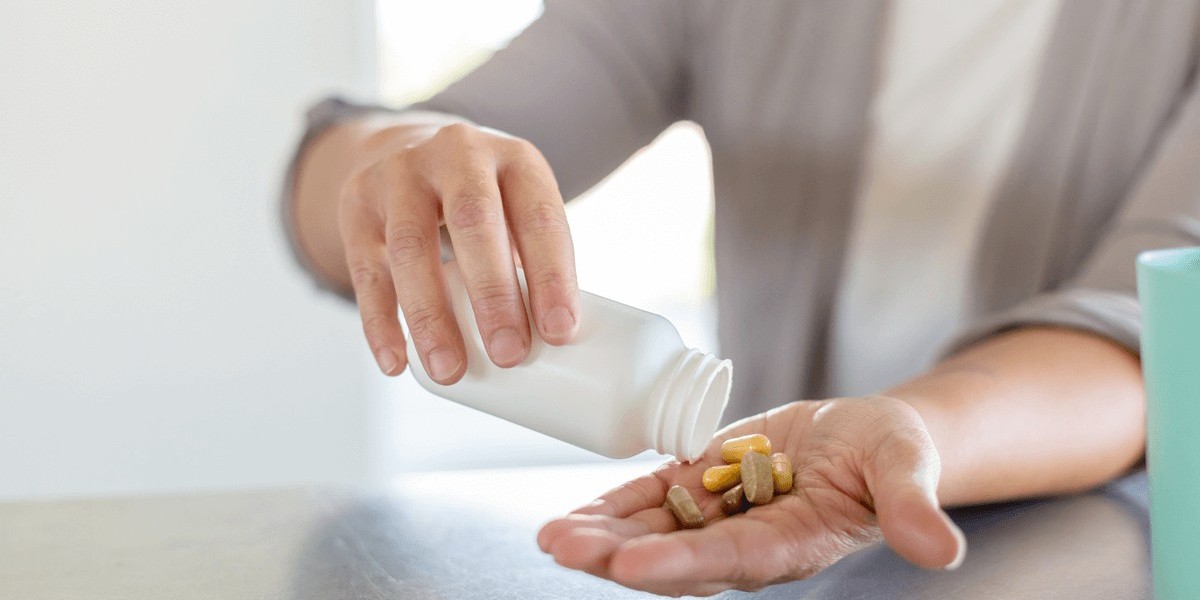Menopause marks the end of a woman’s reproductive cycle, defined clinically as 12 consecutive months without a menstrual period. During this transition, the body experiences a significant drop in estrogen and progesterone production, which can lead to a variety of symptoms: hot flashes, night sweats, mood swings, sleep disturbances, vaginal dryness, bone density loss and changes in cardiovascular health. Because hormone replacement therapy (HRT) isn’t suitable or acceptable for everyone, many women turn to dietary supplements for relief.
What Are “Menopause Relief Supplements”?
In the context of menopause, supplements generally include:
- Herbal or botanical extracts with phytoestrogenic activity (e.g., Soy Isoflavones, Red Clover Extract, Black Cohosh)
- Nutrients that support bone, heart or mood health (e.g., vitamin D, magnesium, omega-3 fatty acids)
- Less-common botanical adaptogens (e.g., Maca Root, Evening Primrose Oil)
However, it's critical to recognize the distinction: these products are not regulated like prescription medications, and their claims often exceed what science supports. According to the National Center for Complementary and Integrative Health (NCCIH), "there is little evidence that natural products, such as herbs and other dietary supplements, are helpful" for menopause-related symptoms.
What the Research Shows
Here is a summary of evidence from current research:
Soy Isoflavones & Phytoestrogens
Studies on soy-based isoflavones (plant compounds with estrogen-like activity) show modest potential for reducing hot flashes and preserving bone density. In a systematic review:
“Isoflavones reduce hot flashes even accounting for placebo effect, attenuate lumbar spine bone mineral density loss.”
Another meta-analysis of plant-derived supplements indicated that various items (soy, red clover, others) showed significant improvement in questionnaire scores for menopausal symptoms.
That said, the effect sizes are typically small and results vary by individual. Also:
- The long-term safety of high-dose isoflavones remains unclear.
- A specific trial of red clover isoflavones vs placebo found no clear benefit for hot flashes over 12 weeks.
- Omega-3 Fatty Acids
Omega-3s are widely recommended for cardiovascular and general health, but when it comes to menopausal hot flashes and night sweats, the evidence is weak:
“Our analysis suggests that omega-3 supplements may alleviate night sweats but have no benefit in reducing hot flushes, or improving sleep quality and quality of life during the menopausal period.”
Other Botanicals and Supplements
- Maca root, evening primrose oil, dong quai, fennel seed extract have all been studied in small trials. Some suggest symptom relief (hot flashes, mood) but results remain inconsistent.
- Black cohosh has mixed evidence, and there have been concerns about liver safety.
Overall Summary
In short: yes, some supplements may offer small relief of menopausal symptoms, but no supplement has the level of evidence to replace standard treatments like HRT (where appropriate). Many of the studies are small, short-term, or of variable quality.
“None of these products—and indeed, no dietary supplements or herbal remedies—are considered effective for menopause relief by the Menopause Society.”
Practical Guidance: What to Consider
If you’re thinking about using supplements for menopause relief, here are key pointers:
- Consult your healthcare provider first
Especially if you have hormone-sensitive conditions (e.g., breast cancer history), are taking medications (e.g., blood-thinners, antidepressants), or have liver/kidney issues. - Choose well-tested, single-ingredient products
Simple formulas (e.g., standardized soy isoflavones only) are preferable to complex blends with many herbs and little evidence. Harvard experts caution: “If you decide to consider any [supplement], … Avoid blended products. - Check for third-party verification
Look for seals such as USP or NSF, which indicate independent testing for label accuracy and purity. - Have realistic expectations
Relief tends to be modest, not dramatic. Supplements may support symptom management but are unlikely to eliminate them entirely. - Maintain a holistic approach
Lifestyle factors matter significantly: healthy diet, regular exercise, adequate sleep, stress management, weight management and bone-health support all contribute meaningfully.
Final Thoughts
Supplements for menopause relief sit in a “maybe helpful” zone — they might offer benefit for certain symptoms in some women, but they’re not magic bullets. If you’re exploring them, do so with care, informed by evidence, and in consultation with your healthcare provider. Prioritise quality of life, safe practices and a broader health strategy — supplements can be part of the plan, but shouldn’t be the only one.








